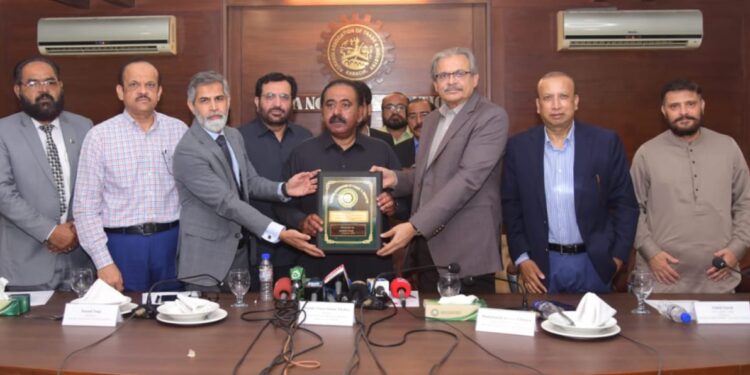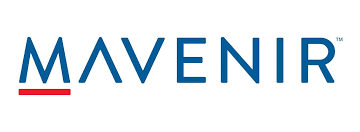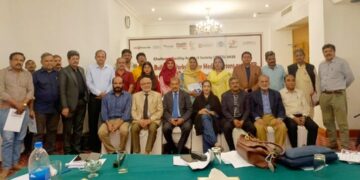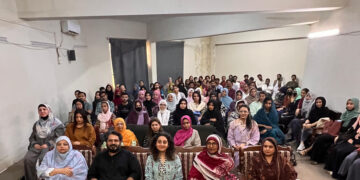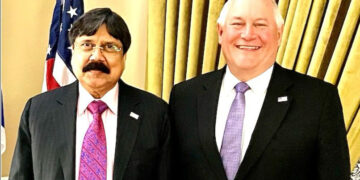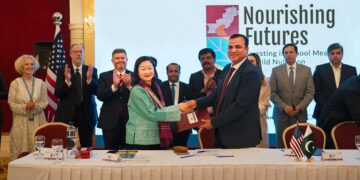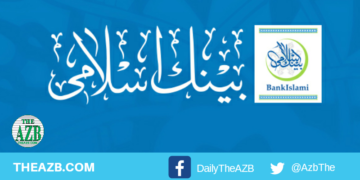Karachi: Provincial Minister for Labor and Human Resource, Shahid Abdul Salam Taheem, assured industrialists at a luncheon hosted by the Korangi Association of Trade and Industry (KATI) that the Sindh government will not allow industries to be blackmailed by labor organizations making illegal demands. He stressed that the government is committed to protecting both industries and legitimate workers’ rights, with new rules being implemented in coordination with the Ministry of Interior and other departments. The minister emphasized that the recently announced increase in the minimum wage from Rs. 32,000 to Rs. 37,000 is part of the government’s efforts to support laborers while ensuring the business environment remains favorable for investors.
The event, held at KATI’s premises, was attended by key industry leaders, including KATI President Junaid Naqi, Deputy Patron-in-Chief Zubair Chhaya, CEO of KITE Limited Zahid Saeed, Vice President Tariq Hussain and former presidents Johar Qandhari, Farhan-ur-Rehman, Danish Khan, SM Yahya, Gulzar Firoz, Ehtshamuddin and other senior members were also present.
Taheem acknowledged that KITE Limited—the development agency responsible for managing the Korangi Industrial Area—had not received government funds since 2016. He promised to recommend a meeting between the Chief Minister of Sindh and the leadership of KATI and KITE Limited to ensure the release of additional funds needed for infrastructure improvements. The minister noted that the government was actively working to introduce a one-window operation to simplify compliance with labor laws and reduce interference from multiple departments. This, he explained, would help eliminate the frequent issuance of unnecessary notices by government agencies, which has been a major source of frustration for industrialists.
Earlier, KATI President Junaid Naqi expressed concerns over the harassment faced by businesses under the pretext of labor law enforcement. He highlighted that more than 1.5 million people rely on the Korangi Industrial Area for employment, and the industries bear significant financial responsibility for their medical expenses, pensions, and other welfare needs. Naqi pointed out that industrialists are committed to providing better facilities and working conditions for their employees, but inconsistent regulations at the provincial and federal levels have made compliance difficult. He urged the government to address these discrepancies and implement a streamlined single-window system for employee registrations and other labor-related matters to ease the burden on businesses.
Deputy Patron-in-Chief Zubair Chhaya echoed these concerns, emphasizing the importance of industries in driving economic growth. He reminded attendees that the first industry in Pakistan, established in Karachi in 1948 by Quaid-e-Azam Muhammad Ali Jinnah, underscored the importance of industry for the country’s future. However, Chhaya warned that industries today are being harmed by the illegal activities of certain labor organizations, which make unwarranted demands and resort to blackmailing tactics. While KATI remains committed to supporting the genuine demands of labor groups, he stressed the need for action against organizations that exploit businesses through such means. Chhaya urged the Sindh government to provide a conducive environment that encourages investment and growth, restoring the confidence of industrialists.
Zahid Saeed, CEO of KITE Limited, explained that small and medium enterprises (SMEs) in the Korangi Industrial Area are particularly vulnerable to harassment from government departments. Unlike large corporations, these SMEs lack the resources to establish dedicated HR departments and often face difficulties in navigating the complex regulatory framework. Saeed highlighted that 32 different departments are involved in issuing permits and certifications, creating bottlenecks for businesses. He specifically criticized the requirement for clearance from the Civil Defense Department, calling it unnecessary and burdensome.
Saeed also underscored the urgent need for infrastructure renovation in Korangi, including the repair of roads, drainage systems, and intersections, to facilitate smooth industrial operations. He requested the labor minister to arrange a meeting with the Chief Minister to secure additional funds not only for KATI but also for other industrial town associations in Karachi. Saeed reiterated that the development of the Korangi Industrial Area is crucial for maintaining the productivity and competitiveness of Pakistan’s largest export hub.





